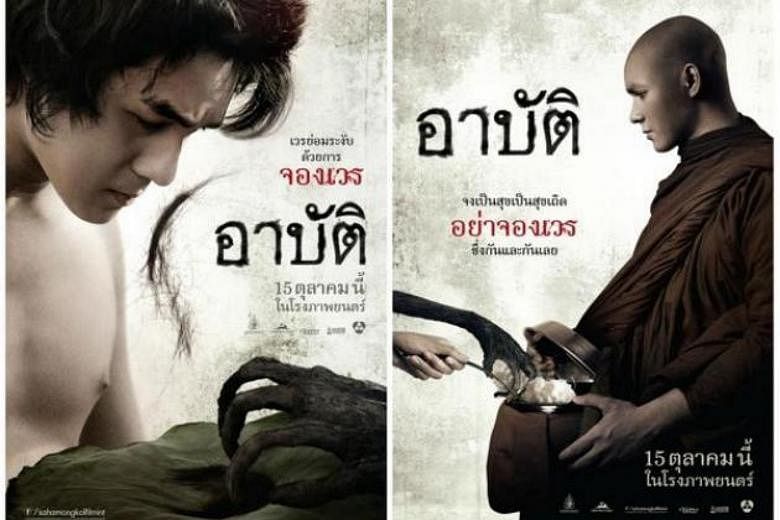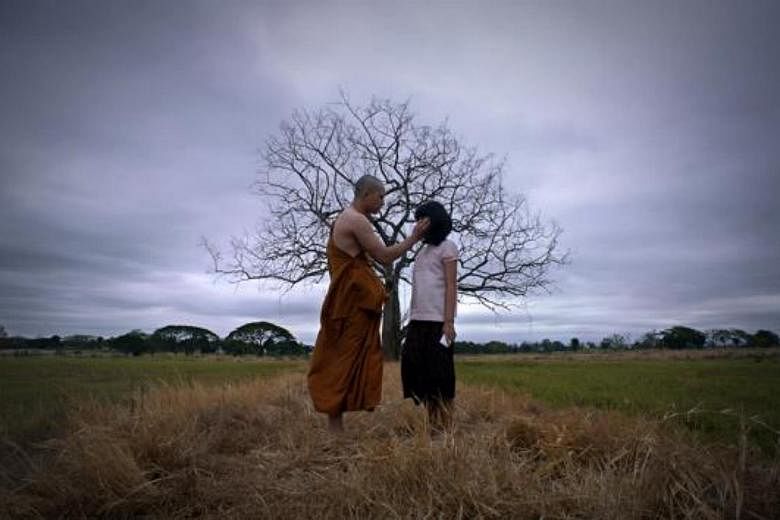In its editorial on Oct 15, 2015, The Nation says that the Culture Ministry's decision to keep "Arbat" out of cinemas ignores the reality that fiction seeks to depict.
The Thai feature film "Arbat" has proved so controversial even before its release that the Culture Ministry has banned it, a decision that, given the country's regression to military rule, was guaranteed to garner headlines around the world.
It's hardly the sort of publicity that producer Prachya Pinkaew and screenwriter-director Kanitta Kwanyoo were expecting, but it won't hurt their movie's box-office appeal overseas.
Buddhist groups and monks had objected to the film's depiction of a wayward Buddhist novice committing a grievous sin in having intimate relations with a woman, and the debate on the social media has been fiery.
Scheduled for release this week, "Arbat" has instead joined the list of movies banned in Thailand for various reasons ranging from the understandable to the inane.
In this case, the ministry feared that "Arbat" could damage the country's majority faith, in line with critics' complaints that it insults Buddhism and invites viewers to denigrate the religion.
It has been charged that the movie seeks to undermine the faith of Buddhists, and it hasn't helped that the actor chosen to play the wayward novice is a Christian.
Director Kanitta characterises his script as the story of a misbehaving youth whose parents force him to be ordained in the hope he will mend his ways.
The film, he insists, is about being able to tell right from wrong and being aware of the consequences of karma.
Producer Prachya maintains that, in spite of the controversy sparked by the film's promotional trailer, the intention is to support Buddhism, not hurt it.
To arguments that the film serves to "shame" wayward monks, however, one offended monk has countered that such a tactic is unfair to monastic society as a whole.
The readiness to defend one's religion against perceived threats is laudable, but what we have here is an overreaction to a work of fiction that nevertheless reflects actual behaviour among some members of the clergy.
Thai history is rife with instances of monks - and even abbots - committing shameful and sometimes illegal acts, often shielded by their saffron robes.
The vow of celibacy all too often seems fragile.
Other monastic precepts appear porous.
Personal wealth is accumulated dishonestly.
Supernatural powers are claimed.
Men enter the monkhood specifically to abuse its privileges.
Such nonsense abounds, a worrying situation whose weight is alleviated only by the untarnished honesty and dedication offered by the vast majority of the 290,000 monks and 58,000 novices in this country.
Against these noble souls devoting their lives to their own betterment and that of society, we must tally the far fewer monks ordained without heed of the Lord Buddha's teachings.
Perhaps, like the character in "Arbat", they are forced into it by their parents, perhaps they desire only free food and lodging, and perhaps they covet the worship of laymen.
It is these real-life wayward monks - not a fictional character in a movie - to whom the complaints should be directed.
We should be more concerned about the monks whose shameful behaviour wearies believers and casts the religion in a negative light.
The Supreme Sangha should make it more difficult for candidates to be ordained and easier for them to be disrobed if they commit wrongdoing, and that includes any claim to possessing supernatural power, a widespread practice in Thailand.
To truly protect Buddhism, we can start by ridding the clergy of miscreants and ensuring that monks adhere to the rules of their order.
Senior monks and lay officials have plenty of work to do in this regard, enough to keep them far too busy to be bothered with the whims of cinema.
* The Nation is a member of The Straits Times media partner Asia News Network, a grouping of 22 newspapers to promote coverage of Asian affairs.



